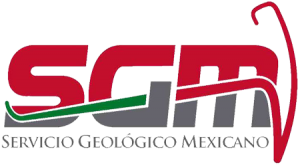TORONTO, ONTARIO, Jul 26, 2012 (MARKETWIRE via COMTEX) — Alamos Gold Inc. /quotes/zigman/26816 CA:AGI +1.69% (“Alamos” or the “Company”) today reported its operating and financial results for the quarter ended June 30, 2012 and reviewed its operating, exploration and development activities for the period. All amounts are expressed in United States dollars unless otherwise specified.
“Alamos’ performance in the second quarter underscores our success in maintaining an excellent financial profile, as quarterly revenues, earnings, and cash flows were all strong. We recorded another quarter of $40 million-plus pre-working capital operating cash flows and remain one of the lowest cost gold producers in our industry. We also realized our highest ever quarterly gold sales, at 50,000 ounces for revenues of $80.9 million,” said John A. McCluskey, President and Chief Executive Officer. “From a production standpoint, we expect to achieve the low end of the Company’s guidance of 200,000 to 220,000 ounces of gold in 2012 at a cash operating cost of $365 to $390 per ounce sold, excluding a 5% royalty.
“During the quarter we completed a robust preliminary feasibility study for our Agi Dagi and Kirazli assets in Turkey. These projects should benefit further through the addition of higher grade ounces from our nearby Camyurt project. The Company remains debt free with over $280 million in cash and short-term investments, as well as outstanding cash flow generation. We expect to be able to internally finance the development of our Turkish projects, maintain a healthy dividend payout, and fund our immediate capital, development and exploration plans,” Mr. McCluskey commented.
Second Quarter 2012 Highlights
Financial Performance
— Generated strong cash from operating activities before changes in non-
cash working capital of $41.9 million ($0.35 per basic share). After
changes in non-cash working capital, the Company generated quarterly
cash from operating activities of $44.1 million ($0.37 per basic share)
— Set quarterly gold sales records of 50,000 ounces for revenues of $80.9
million
— Realized quarterly earnings of $24.7 million or $0.21 per basic share
— Increased cash and cash equivalents and short-term investments to $281.5
million at June 30, 2012
Operational Performance
— Produced a record 48,200 ounces of gold at a low cash operating cost of
$323 per ounce of gold sold (total cash costs including royalties were
$408 per ounce of gold sold)
— Posted record average quarterly crusher throughput of 16,800 tonnes per
day (“tpd”) and averaged 18,000 tpd in April and May
Exploration and Development
— Completed a positive preliminary feasibility study for the Agi Dagi and
Kirazli gold projects in Turkey, which outlined total life of mine
production of 1.5 million ounces of gold and 4.9 million ounces of
silver, and an after-tax internal rate of return (“IRR”) of 22.3% using
analyst long term consensus gold prices averaging $1,239 per ounce
— Published an initial inferred mineral resource estimate for the Camyurt
project of 640,000 ounces of gold and 3.8 million ounces of silver,
representing a substantial addition to the Company’s resource base in
Turkey
Second Quarter 2012 Financial Results
The Company generated strong cash from operating activities in the second quarter of 2012 as a result of higher realized gold prices and continued low cash costs. Cash from operating activities before changes in non-cash working capital in the second quarter of $41.9 million ($0.35 per basic share) was 51% higher than $27.7 million ($0.24 per basic share) generated in the second quarter of 2011. Cash from operating activities after changes in non-cash working capital in the second quarter of 2012 of $44.1 million ($0.37 per basic share) increased 59% relative to the same period of 2011.
Earnings before income taxes in the second quarter of 2012 were $38.7 million or $0.32 per basic share, compared to $24.9 million or $0.21 per basic share in the second quarter of 2011. On an after-tax basis, earnings in the second quarter of 2012 of $24.7 million or $0.21 per basic share increased 59% over the comparable period of 2011. Notwithstanding this strong performance relative to the same period last year, earnings in the second quarter of 2012 were adversely affected by higher amortization costs related to the start of mining at the Escondida high-grade deposit and foreign exchange losses related to the strengthening of the US dollar relative to the Mexican peso.
Capital expenditures in the second quarter of 2012 totalled $10.2 million. Investments in sustaining capital and development activities for the Company’s Mexican operations were $4.9 million and $3.0 million, respectively. In addition, the Company capitalized $2.3 million in exploration and development activities for its Turkish projects.
Key financial highlights for the second quarter and year to date in 2012 compared to the same periods of 2011 are presented at the end of this release in Table 1. The unaudited interim consolidated statements of financial position, comprehensive income, and cash flows as at and for the three and six months ended June 30, 2012 and 2011 are presented in Table 2.
Second Quarter 2012 Operating Results
Gold Production
Gold production of 48,200 ounces in Q2 2012 rose 34% from gold production of 36,000 ounces in Q2 2011 and was up 19% quarter over quarter. Higher gold production in the second quarter of 2012 relative to the second quarter of 2011 was attributable to a full quarter of production from the gravity mill, as well as a 12% increase in crusher throughput, partially offset by a lower grade of ore mined and stacked on the leach pad.
Operating Costs
Cash operating costs of $323 per ounce of gold sold in the second quarter of 2012 were below the low end of the Company’s guidance of $365 per ounce, and 9% lower than $355 per ounce reported in the second quarter of 2011. This decrease is primarily due to the lower cash costs attributable to ounces produced from the Escondida high-grade zone in the second quarter of 2012, as well as the weakening Mexican peso, which had the effect of lowering Mexican peso-denominated costs. These cost reductions were offset by higher input costs, including labour, cyanide and diesel. Including the 5% royalty, total cash costs were $408 per ounce of gold sold in the quarter.
Escondida High-Grade Zone
In 2006 the Company identified Escondida as the first high-grade zone in close proximity to the Mulatos mine. Exploration activities to date have delineated a mineral reserve of 434,000 tonnes grading 11.81 g/t Au for 164,792 contained ounces.
Drill results supporting the mineral reserve were obtained mainly from an exploration tunnel through the middle of the deposit, where high concentrations of coarse gold were found.
A bulk sample test in 2007 to assess the zone’s grade involved approximately 50 times the volume of prior drill indicated samples. The mean bulk grade of the samples averaged 25.48 g/t Au; illustrating the potential for much higher grades than demonstrated through drill testing. In early 2012 the Company completed construction of a gravity mill to process high-grade ore mined from Escondida. The second quarter of 2012 was the first full quarter of mining operations within the zone.
The budgeted grade of ore mined from Escondida for 2012 is 13.4 g/t Au. However, the mined grade in the second quarter of 2012 was 10.78 g/t Au. The reconciliation of mined blocks to the Escondida high-grade zone block model for the quarter ended June 30, 2012 was +21%, -25% and -9% for tonnes, grade and ounces respectively.
In the months of April and May 2012, the tonnes and grade of Escondida ore mined was consistent with the block model. In the month of June there was a significant increase in tonnes mined relative to the block model (see Figure 1), which was more than offset by a decrease in the grade mined. A small area that had been modelled as containing high gold concentrations (25 g/t Au+) did not have the quantity of gold anticipated. A detailed review of the mining sequence relative to the block model indicated that difficulties arising from mining through the top of the exploration tunnels caused this variance. Although in the month of June the reconciliation was negative with respect to grade and ounces, the Company believes this is not representative of the total deposit and that substantial upside with respect to grade remains.
The Company has mined the top section and contact areas of the perimeter of the modelled Escondida zone, totalling 65,000 tonnes of high-grade ore and representing approximately 15% of the pit-contained high-grade mineral reserve tonnes (see figures 2 and 3). The material mined has been from above the main body of the deposit where the exploration tunnel was developed and the high-grade bulk sample results were obtained. Visual inspection of the benches mined show that they do not have all of the characteristics of the high-grade material observed and sampled in the exploration tunnel.
The exploration tunnel was driven up through the bottom of the deposit and topped out near the upper contact. However, the concentrations of coarse, visible gold were observed several meters below the top of the deposit, where mining activities have not yet started. For this reason, the Company believes that the grades mined in the second quarter of 2012 are not indicative of the remainder of the deposit and expects higher grades in the second half of 2012, as mining begins in the main body of the zone.
In order to validate the block model and further assess the potential for future positive grade reconciliation, the Company initiated an 18-hole reverse-circulation (“RC”) drill program in early July 2012. The objective of this program was to drill test the grades indicated in the block model to confirm its results. Assays from this program support the block model and the potential for higher mined grades throughout the remainder of the deposit. The Company expects higher production from the Escondida zone in the third quarter of 2012.
Grade
The grade of the crushed ore stacked on the leach pad in the second quarter of 2012 of 1.15 g/t Au was higher than the full year budgeted grade of 1.00 g/t Au, and below the grade in the second quarter of 2011 of 1.27 g/t Au. Applying higher gold price assumptions to the mine model has resulted in material previously classified as waste becoming economic to mine and therefore classified as low-grade ore. This has the effect of lowering the average grade mined.
The reconciliation of mined blocks to the block model for the Mulatos pit for the quarter ended June 30, 2012 was -8%, +6% and -2% for tonnes, grade and ounces respectively. Since the start of mining activities in 2005, the project-to-date reconciliation is +1%, +8%, +9% for tonnes, grade and ounces, respectively. Positive reconciliation variances indicate that the Company is mining more gold than what was indicated in the reserve model.
Crusher Throughput
Crusher throughput in the second quarter of 2012 averaged 16,800 tpd, 12% higher than 15,000 tpd in the same period of last year but below the annual average budgeted rate of 17,500 tpd. During the months of April and May, crusher throughput averaged over 18,000 tpd, but dropped significantly in the month of June as a result of unscheduled downtime caused by a defect in the structural base of the primary crusher, causing premature liner wear and failure. This issue was resolved by the end of the second quarter and throughput in July 2012 is approximately 17,000 tpd. In 2012, higher crusher throughput has been achieved without sacrificing size quality. The size of crushed ore stacked on the leach pad was consistent with budgeted levels, with over 90% passing 3/8th of an inch in the second quarter of 2012.
Recovery Ratio
The recovery ratio(1) in the second quarter of 2012 was 68%, below the Company’s budgeted average recovery ratio for the year of 77%. The lower recovery ratio was primarily attributable to the gravity mill. Recoveries from the gravity mill have been continuously improving since mill start-up in the first quarter of 2012; however, they remain below budgeted levels of 90%. While the lower mill recoveries slow the gold recovery process, they do not affect ultimate recoveries of the Escondida high-grade ore, as tailings from the milling process are stacked on the leach pad, where bottle roll testing indicates that over 90% of this gold is recovered. In the second quarter, the mill recovery was approximately 65%. This shortfall in recovery has resulted from more fine gold particles being encountered in the Escondida ore than anticipated. Subsequent to quarter end, the Company began operating a Falcon concentrator alongside the mill’s inline pressure jigs. This is expected to improve mill recoveries to approximately 80%. The Company expects the overall recovery ratio to improve in the third quarter of 2012 as mill recoveries rise and the recoverable gold from mill tailings stacked in the second quarter is produced.
Key operational metrics and production statistics for the second quarter and year to date in 2012 compared to the same periods of 2011 are presented in Table 3 at the end of this press release.
(1) “recovery ratio” is defined as the ratio of gold ounces produced divided by the number of contained ounces stacked over a specific period.
Second Quarter 2012 Exploration and Development Update
Mexico
The Company has completed 31,800 metres (“m”) of drilling in 190 holes to date in 2012. Exploration activities in the second quarter were focused on infill and step-out drilling at East Estrella, step-out and geotechnical drilling at San Carlos and exploration and geotechnical drilling at Compadres.
San Carlos
At San Carlos in the second quarter of 2012, the Company invested $0.5 million, which was capitalized. Exploration activities focused on testing high-grade extensions northeast of the existing mineral resource area with step-out drilling. The steep incline in topography to the northeast has made drilling the mineralized extensions difficult and hole deviations wide, considering the mineralized targets are more than 300 m from surface. Drill hole 12SC168 hit the high-grade zone – 19.82m of 10.4 g/t Au, including 9.15m of 21.2 g/t Au. This high-grade zone was encountered approximately 550 m east of the main San Carlos mineral resource and reserve, and on trend with previously defined gold mineralization.
In 2011, the Company obtained positive results from metallurgical testing conducted on the high-grade ore at San Carlos. The results indicated that the high-grade ore at San Carlos is amenable to gravity separation and therefore capable of serving as an additional source of feed for the gravity mill. Ultimate recovery rates (gravity separation followed by leaching the tailings with cyanide) were 78% and 70% for the two large samples processed. There is potential to further improve these recovery levels and this is currently being evaluated through additional testing. The Company has high-grade proven and probable mineral reserves at San Carlos of 649,000 tonnes grading 7.67 g/t Au, for approximately 160,000 contained ounces. Evaluation of the potential to mine a portion of the San Carlos deposit through underground mining methods is ongoing.
Relevant assay results from the recent drilling at San Carlos are presented in Table 4 at the end of this press release.
East Estrella
Exploration drilling directly east of the Mulatos pit southeast wall began in late March after a detailed evaluation of previous drill hole data. Condemnation drilling completed to investigate a proposed waste dump site east of the Estrella Pit by Placer Dome in 1996 encountered a number of near-surface mineralized intercepts in the area. Assay results received to date confirm widespread gold-silver-copper mineralization in the area that appears more controlled, with north-south structures compared to the main Mulatos deposit. A previously undocumented stratiform silicified hydrothermal breccia was mapped on the pit wall in the northern part of the project area, which is believed to be related to the East Estrella system and has the potential to be gold-bearing. Resource expansion potential exists in the area; therefore a 21-hole drill program will be completed in 2012, and has been designed to drill test the area on roughly 50 m centres. Core holes will be needed for metallurgical testing once the area is drill defined.
Recent highlighted intercepts from drilling conducted to date include:
2.34 g/t Au over 15.24 m (12SX042)
2.10 g/t Au over 30.48 m (12SX043)
6.00 g/t Au over 13.72 m (12SX044)
Relevant assay results from the recent drilling at East Estrella are presented in Table 5 at the end of this press release.
Turkey
Exploration expenditures in Turkey in the second quarter of 2012 totalled $2.1 million. Four drill rigs were active throughout the quarter, drilling a total of 33 holes (3,300 m).
Camyurt
The Company published an initial pit-constrained inferred mineral resource estimate of 640,000 ounces of gold and 3.8 million ounces of silver at Camyurt, applying a 0.2 g/t Au cut-off. The Camyurt project is located approximately three kilometres (“km”) southeast of the Company’s development-stage Agi Dagi project. Drilling at Camyurt has defined a mineralized zone that is continuous for at least 1,200 m along strike, with additional potential to extend mineralization to the northeast and at depth. Gold mineralization is hosted within a tabular, steeply-dipping oxidized zone starting at surface and with a cross-strike width up to 150 m. The average drill spacing is approximately 55 m along strike, and 59 drill holes were used in the estimate. The new inferred mineral resource estimate for Camyurt represents a significant addition to the Company’s resource base in Turkey. In addition, the average grade of the resource is substantially higher than at the Agi Dagi and Kirazli projects. The Company intends to upgrade and continue expanding resources at Camyurt in 2012.
Recent highlighted intercept from drilling conducted to date include:
1.00 g/t Au over 94.0 m (12CYD54)
Relevant assay results from the recent drilling at Camyurt are presented in Table 6 at the end of this press release.
Firetower
The Agi Dagi project is composed of two planned pits, Baba and Deli. The Firetower project is contiguous with the Baba deposit. Gold mineralization extends more than 880 m to the northeast, towards the Deli deposit, and is part of the Agi Dagi resource area. Two drill rigs have operated on the project in 2012, drilling 5,600 m in 13 holes. A portion of the Firetower mineral resource area was included in the Company’s year-end 2011 mineral reserve and resource statement, as inferred mineral resources. However, these were not incorporated into the June 2012 preliminary feasibility study as it included only measured and indicated resources. Upgrading these resources to measured and indicated will improve the economics of the Agi Dagi project.
Rock Pile
Rock Pile is an exploration target located immediately west of the planned Kirazli pit. The previous operator collected 71 surface rock samples with an average grade of 3.8 g/t Au. The sampling area is 400 m long by 100 m wide and an inverse polarization (“IP”) survey identified probable zones of silicification that correspond to the sample area. Drilling is testing a portion of the Rock Pile target, and 1,960 m has been completed to date. This work has intersected ore-grade oxide gold mineralization at surface over moderate widths, but has not yet been successful in identifying the gold grades of the previous operators rock chip sampling.
Recent highlighted intercepts include from drilling conducted to date include:
1.93 g/t Au over 14.6 m (12KD182)
1.19 g/t Au over 16.0 m (12KD183)
Relevant assay results from the recent drilling at Rock Pile are presented in Table 7 at the end of this press release.
Outlook
The Company continues to anticipate that it will produce between 200,000 and 220,000 ounces of gold in 2012 at a cash operating cost of $365 to $390 per ounce of gold sold, exclusive of the 5% royalty. Based on production in the first half of 2012, and the continuing ramp-up of the gravity mill to design recoveries, the Company expects that full-year 2012 production will likely be toward the lower end of the guidance range.
The Mulatos Mine remains on track to produce its one millionth ounce of gold this year. The Company’s mineral reserve and resource update released in the first quarter of 2012 confirmed that the life of the Mulatos Mine remains unchanged at nine years. Exploration success at Mulatos has resulted in replacing mined mineral reserves each year since the start of production in 2005.
In Turkey, the Company has completed a robust preliminary feasibility study for the Agi Dagi and Kirazli projects and will submit the full 43-101 technical report in a matter of weeks. The Company is focused on completing and submitting the final environmental impact assessments for Kirazli and Agi Dagi and expects responses from the government in the first and second quarters of 2013. The Company is also committed to aggressively drilling the Camyurt project to bring the inferred resource ounces to the measured and indicated categories. This is the next step in fast-tracking the project toward production.
The Company has further enhanced its financial position with continuing strong cash flows from operations and is debt free with over $280 million in cash and short-term investments. This will enable the Company to internally finance its immediate capital, development and exploration plans, and provides significant funding for organic growth and acquisitions.
Associated Documents
This press release should be read in conjunction with the Company’s interim consolidated financial statements for the three-month periods ended June 30, 2012 and June 30, 2011 and associated Management’s Discussion and Analysis (“MD&A”), which are available from the Company’s website, www.alamosgold.com , in the “Investor Centre” tab in the “Reports and Financial Statements” section, and on SEDAR ( www.sedar.com ).
Reminder of Second Quarter 2012 Results Conference Call
The Company’s senior management will host a conference call on Thursday, July 26, 2012 at 12:00 pm ET to discuss second quarter 2012 results and update operating, exploration, and development activities.
Participants may join the conference call by dialling 1 (866) 226-1793 or 1 (416) 340-2218 for calls outside Canada and the United States, or via webcast on the Company’s website at www.alamosgold.com .
A playback of the conference call can be accessed after the event until August 9, 2012 by dialling 1 (800) 408-3053 or 1 (905) 694-9451 for calls outside Canada and the United States. The pass code for the conference call playback is 4074233. The audio webcast will also be available on the Company’s website at www.alamosgold.com .
QA/QC Programs
Agi Dagi, Kirazli and Camyurt exploration programs were conducted under the supervision of Charles Tarnocai, PhD in Geology, Alamos’ Vice President of Exploration and Corporate Development, a Qualified Person as defined by National Instrument 43-101 of the Canadian Securities Administrators. Strict sampling and QA/QC protocol are followed, including the insertion of standards, blanks, and duplicates on a regular basis. Sample intervals are usually 1.0 to 1.5 m. Agi Dagi, Kirazli and Camyurt samples are sent to Acme Analytical Laboratories in Ankara, Turkey for sample preparation and then to Vancouver, British Columbia, Canada or Santiago, Chile for analysis. Analytical method is fire assay with atomic adsorption finish and gravimetric finish for individual samples with a gold concentration greater than 3.0 g/t Au.
Mulatos exploration programs are conducted under the supervision of Ken Balleweg, B.Sc. Geological Engineering, M.Sc. Geology, Registered Professional Geologist, Alamos’ Mexico Exploration Manager. Mr. Balleweg is a Qualified Person as defined by National Instrument 43-101 of the Canadian Securities Administrators. Strict sampling and QA/QC protocol are followed, including the insertion of standards, blanks, and duplicates on a regular basis. Sample intervals are usually 0.5 to 1.5 m. Mulatos samples are sent to ALS Chemex Inc. in Hermosillo, Mexico for sample preparation and then to Vancouver, British Columbia, Canada for analysis. Analytical method is fire assay with atomic adsorption finish and gravimetric finish for individual samples with a gold concentration greater than 5.0 g/t Au.
About Alamos
Alamos is an established Canadian-based gold producer that owns and operates the Mulatos Mine in Mexico, and has exploration and development activities in Mexico and Turkey. The Company employs more than 500 people in Mexico and Turkey and is committed to the highest standards of environmental management, social responsibility, and health and safety for its employees and neighbouring communities. Alamos has over $280 million cash and short-term investments, is debt free, and unhedged to the price of gold. As of July 24, 2012, Alamos had 119,856,708 common shares outstanding (124,716,708 shares fully diluted), which are traded on the Toronto Stock Exchange under the symbol “AGI”.
Cautionary non-GAAP Measures and Additional GAAP Measures
Note that for purposes of this section, GAAP refers to IFRS. The Company believes that investors use certain non-GAAP and additional GAAP measures as indicators to assess gold mining companies. They are intended to provide additional information and should not be considered in isolation or as a substitute for measures of performance prepared with GAAP.
Additional GAAP measures that are presented on the face of the Company’s consolidated statements of comprehensive income include “Mine operating costs”, “Earnings from mine operations” and “Earnings from operations”. These measures are intended to provide an indication of the Company’s mine and operating performance. “Cash flow from operating activities before changes in non-cash working capital” is a non-GAAP performance measure that could provide an indication of the Company’s ability to generate cash flows from operations, and is calculated by adding back the change in non-cash working capital to “Cash provided by (used in) operating activities” as presented on the Company’s consolidated statements of cash flows. “Mining cost per tonne of ore” and “Cost per tonne of ore” are non-GAAP performance measures that could provide an indication of the mining and processing efficiency and effectiveness of the mine. These measures are calculated by dividing the relevant mining and processing costs and total costs by the tonnes of ore processed in the period. “Cost per tonne of ore” is usually affected by operating efficiencies and waste-to-ore ratios in the period. “Cash operating costs per ounce” and “total cash costs per ounce” as used in this analysis are non-GAAP terms typically used by gold mining companies to assess the level of gross margin available to the Company by subtracting these costs from the unit price realized during the period. These non-GAAP terms are also used to assess the ability of a mining company to generate cash flow from operations. There may be some variation in the method of computation of “cash operating costs per ounce” as determined by the Company compared with other mining companies. In this context, “cash operating costs per ounce” reflects the cash operating costs allocated from in-process and dore inventory associated with ounces of gold sold in the period. “Cash operating costs per ounce” may vary from one period to another due to operating efficiencies, waste-to-ore ratios, grade of ore processed and gold recovery rates in the period. “Total cash costs per ounce” includes “cash operating costs per ounce” plus applicable royalties. Cash operating costs per ounce and total cash costs per ounce are exclusive of exploration costs. non-GAAP and additional GAAP measures do not have a standardized meaning prescribed under IFRS and therefore may not be comparable to similar measures presented by other companies.
Cautionary Note
No stock exchange, securities commission or other regulatory authority has approved or disapproved the information contained herein. This News Release includes certain “forward-looking statements”. All statements other than statements of historical fact included in this release, including without limitation statements regarding forecast gold production, gold grades, recoveries, waste-to-ore ratios, total cash costs, potential mineralization and reserves, exploration results, and future plans and objectives of Alamos, are forward-looking statements that involve various risks and uncertainties. These forward-looking statements include, but are not limited to, statements with respect to mining and processing of mined ore, achieving projected recovery rates, anticipated production rates and mine life, operating efficiencies, costs and expenditures, changes in mineral resources and conversion of mineral resources to proven and probable reserves, and other information that is based on forecasts of future operational or financial results, estimates of amounts not yet determinable and assumptions of management.
Exploration results that include geophysics, sampling, and drill results on wide spacings may not be indicative of the occurrence of a mineral deposit. Such results do not provide assurance that further work will establish sufficient grade, continuity, metallurgical characteristics and economic potential to be classed as a category of mineral resource. A mineral resource which is classified as “inferred” or “indicated” has a great amount of uncertainty as to its existence and economic and legal feasibility. It cannot be assumed that any or part of an “indicated mineral resource” or “inferred mineral resource” will ever be upgraded to a higher category of resource. Investors are cautioned not to assume that all or any part of mineral deposits in these categories will ever be converted into proven and probable reserves.
Any statements that express or involve discussions with respect to predictions, expectations, beliefs, plans, projections, objectives, assumptions or future events or performance (often, but not always, using words or phrases such as “expects” or “does not expect”, “is expected”, “anticipates” or “does not anticipate”, “plans”, “estimates” or “intends”, or stating that certain actions, events or results “may”, “could”, “would”, “might” or “will” be taken, occur or be achieved) are not statements of historical fact and may be “forward-looking statements.” Forward-looking statements are subject to a variety of risks and uncertainties which could cause actual events or results to differ from those reflected in the forward-looking statements.
There can be no assurance that forward-looking statements will prove to be accurate and actual results and future events could differ materially from those anticipated in such statements. Important factors that could cause actual results to differ materially from Alamos’ expectations include, among others, risks related to international operations, the actual results of current exploration activities, conclusions of economic evaluations and changes in project parameters as plans continue to be refined as well as future prices of gold and silver, as well as those factors discussed in the section entitled “Risk Factors” in Alamos’ Annual Information Form. Although Alamos has attempted to identify important factors that could cause actual results to differ materially, there may be other factors that cause results not to be as anticipated, estimated or intended. There can be no assurance that such statements will prove to be accurate as actual results and future events could differ materially from those anticipated in such statements. Accordingly, readers should not place undue reliance on forward-looking statements.
Table 1: Financial Highlights
———————————————————————–
—–
Q2 Q2 YTD YTD
2012 2011 2012 2011
—————————————————————————-
Cash provided by
operating activities
before changes in non-
cash working capital
(000) (1) $ 41,861 $ 27,749 $ 86,789 $ 54,754
Changes in non-cash
working capital (000) $ 2,202 $ 9 $ (6,644) $ 2,379
Cash provided by
operating activities
(000) $ 44,063 $ 27,758 $ 80,145 $ 57,133
Earnings before income
taxes (000) $ 38,703 $ 24,874 $ 78,165 $ 50,316
Earnings (000) $ 24,684 $ 15,494 $ 54,154 $ 33,351
Earnings per share
– basic $ 0.21 $ 0.13 $ 0.45 0.29
– diluted $ 0.20 $ 0.13 $ 0.45 0.28
Comprehensive income
(000) $ 24,276 $ 14,624 $ 53,574 $ 30,381
Weighted average number
of common shares
outstanding
– basic 119,636,000 116,843,000 119,288,000 116,688,000
– diluted 120,676,000 117,996,000 120,507,000 118,065,000
Assets (000) (2) $ 666,163 $ 599,224
(1) A non-GAAP measure calculated as cash provided by operating activities
as presented on the consolidated statements of cash flows and adding
back changes in non-cash working capital.
(2) Assets are shown as at June 30, 2012 and December 31, 2011.
Table 2: Unaudited Consolidated Statements of Financial Position, Comprehensive Income, and Cash Flows
ALAMOS GOLD INC.
Unaudited Consolidated Statements of Financial Position
(Stated in thousands of United States dollars)
June 30 December 31
2012 2011
——————————
A S S E T S
Current Assets
Cash and cash equivalents $ 236,198 $ 169,471
Short-term investments 45,305 53,088
Amounts receivable 7,040 6,147
Advances and prepaid expenses 3,143 2,117
Available-for-sale securities 7,006 10,355
Other financial assets 291 244
Inventory 38,165 33,220
——————————
Total Current Assets 337,148 274,642
Non-Current Assets
Exploration and evaluation assets 113,769 108,454
Mineral property, plant and equipment 215,246 216,128
——————————
Total Assets $ 666,163 $ 599,224
——————————
——————————
L I A B I L I T I E S
Current Liabilities
Accounts payable and accrued liabilities $ 18,001 $ 17,024
Income taxes payable 5,045 6,125
Current portion of other liabilities 230 363
——————————
Total Current Liabilities 23,276 23,512
Non-Current Liabilities
Deferred income taxes 43,708 35,008
Decommissioning liability 6,169 6,680
Other liabilities 460 474
——————————
Total Liabilities 73,613 65,674
——————————
——————————
E Q U I T Y
Share capital $ 375,055 $ 355,524
Contributed surplus 25,706 27,861
Accumulated other comprehensive loss (1,660) (1,080)
Retained earnings 193,449 151,245
——————————
Total Equity 592,550 533,550
——————————
Total Liabilities and Equity $ 666,163 $ 599,224
——————————
——————————
ALAMOS GOLD INC.
Unaudited Consolidated Statements of Comprehensive Income
For the three and six months ended
(stated in thousands of United States dollars, except per share amounts)
For the three-month For the six-month
periods ended periods ended
June 30, June 30, June 30, June 30,
2012 2011 2012 2011
——————————————————–
Operating Revenues $ 80,889 $ 56,864 $ 151,145 $ 111,240
——————————————————–
MINE OPERATING COSTS
Mining and
processing 16,150 13,417 31,169 27,075
Royalties 4,230 2,885 7,661 5,486
Amortization 12,679 5,979 20,457 11,704
——————————————————–
33,059 22,281 59,287 44,265
——————————————————–
EARNINGS FROM MINE
OPERATIONS 47,830 34,583 91,858 66,975
EXPENSES
Exploration 2,828 2,161 4,311 4,173
Corporate and
administrative 3,194 2,666 6,125 5,100
Share-based
compensation 1,361 4,525 3,928 7,225
——————————————————–
7,383 9,352 14,364 16,498
——————————————————–
EARNINGS FROM
OPERATIONS 40,447 25,231 77,494 50,477
OTHER INCOME
(EXPENSES)
Finance income 865 394 1,713 798
Financing expense (134) (149) (267) (297)
Foreign exchange
(loss) gain (2,615) (283) (1,416) 775
Other income (loss) 140 (319) 641 (1,437)
——————————————————–
EARNINGS BEFORE
INCOME TAXES FOR
THE PERIOD 38,703 24,874 78,165 50,316
INCOME TAXES
Current tax expense (12,005) (7,950) (15,311) (15,200)
Deferred tax expense (2,014) (1,430) (8,700) (1,765)
——————————————————–
24,684 15,494 54,154 33,351
EARNINGS FOR THE
PERIOD
Other comprehensive
(loss)
– Unrealized loss on
securities (408) (870) (487) (2,970)
– Reclassification
of realized gains
on available-for-
sale securities
included in
earnings – – (93) –
——————————————————–
COMPREHENSIVE INCOME
FOR THE PERIOD $ 24,276 $ 14,624 $ 53,574 $ 30,381
——————————————————–
EARNINGS PER SHARE
– basic $ 0.21 $ 0.13 $ 0.45 $ 0.29
——————————————————–
– diluted $ 0.20 $ 0.13 $ 0.45 $ 0.28
——————————————————–
Weighted average
number of common
shares outstanding
——————————————————–
——————————————————–
– basic 119,636,000 116,843,000 119,288,000 116,688,000
——————————————————–
——————————————————–
– diluted 120,676,000 117,996,000 120,507,000 118,065,000
——————————————————–
——————————————————–
ALAMOS GOLD INC.
Unaudited Consolidated Statements of Cash Flows
For the three and six months ended
(stated in thousands of United States dollars)
For the three-month For the six-month
periods ended periods ended
June 30, June 30, June 30, June 30,
2012 2011 2012 2011
——————————————————–
CASH PROVIDED BY
(USED IN):
OPERATING ACTIVITIES
Earnings for the
period $ 24,684 $ 15,494 $ 54,154 $ 33,351
Adjustments for
items not involving
cash:
Amortization 12,679 5,979 20,457 11,704
Financing expense 134 149 267 297
Unrealized foreign
exchange loss
(gain) 1,062 (208) (196) (276)
Deferred tax
expense 2,014 1,430 8,700 1,765
Share-based
compensation 1,361 4,525 3,928 7,225
Gain on sale of
securities – – (504) –
Other (73) 380 (17) 688
Changes in non-cash
working capital:
Fair value of
forward contracts – (10) – 476
Amounts receivable (4,803) (4,821) (9,808) (7,383)
Inventory (1,038) (558) (3,528) 152
Advances and
prepaid expenses (592) (810) (1,027) 507
Accounts payable,
taxes payable and
accrued
liabilities 8,635 6,208 7,719 8,627
——————————————————–
44,063 27,758 80,145 57,133
——————————————————–
INVESTING ACTIVITIES
Sale (purchases) of
securities – (1,559) 3,338 (4,833)
Contractor advances – (4,063) – (9,593)
Short-term
investments (net) (1,626) (11,927) 7,783 (16,642)
Proceeds on sale of
equipment – 445 – 889
Decommissioning
liability (739) (132) (767) (132)
Exploration and
evaluation assets (2,284) (2,284) (5,315) (3,870)
Mineral property,
plant and equipment (7,965) (13,555) (21,148) (22,475)
——————————————————–
(12,614) (33,075) (16,109) (56,656)
——————————————————–
FINANCING ACTIVITIES
Common shares issued 5,358 4,202 14,501 7,396
Dividends paid (11,950) (5,834) (11,950) (5,834)
——————————————————–
(6,592) (1,632) 2,551 1,562
——————————————————–
Effect of exchange
rates on cash and
cash equivalents (945) 125 140 835
——————————————————–
Net increase
(decrease) in cash
and cash
equivalents 23,912 (6,824) 66,727 2,874
Cash and cash
equivalents –
beginning of period 212,286 156,032 169,471 146,334
——————————————————–
CASH AND CASH
EQUIVALENTS – END
OF PERIOD $ 236,198 $ 149,208 $ 236,198 $ 149,208
——————————————————–
Table 3: Production Summary & Statistics (1)
———————————————————————–
—–
Production summary Q2 2012 Q2 2011 YTD 2012 YTD 2011
—————————————————————————-
Ounces produced (1) 48,200 36,000 88,700 73,500
Crushed ore stacked on leach
pad (tonnes)(2) 1,486,000 1,373,000 2,711,000 2,442,000
Grade (g/t Au) 1.15 1.27 1.16 1.27
————————————————
Contained ounces stacked 54,900 56,100 101,000 99,500
Crushed ore milled (tonnes) 44,500 – 69,600 –
Grade (g/t Au) 10.78 – 10.56 –
————————————————
Contained ounces milled 15,400 – 23,600 –
Ratio of total ounces
produced to contained
ounces stacked and milled 68% 64% 71% 74%
Total ore mined (tonnes) 1,498,000 1,320,000 2,765,000 2,494,000
Waste mined (tonnes) 1,013,000 850,000 1,788,000 1,490,000
————————————————
Total mined (tonnes) 2,511,000 2,170,000 4,553,000 3,984,000
Waste-to-ore ratio 0.68 0.64 0.65 0.60
Ore crushed per day (tonnes)
– combined 16,800 15,000 15,300 13,500
(1) Reported gold production for Q2 2011 and YTD 2011 has been adjusted to
reflect final refinery settlement. Reported gold production for Q2 2012
and YTD 2012 is subject to final refinery settlement and may be
adjusted.
(2) Excludes high-grade mill tails stacked on the heap leach pad during the
quarter.
Table 4: San Carlos – Select Composite Intervals –
Reverse Circulation Drilling(1)
Include intervals at greater than 0.35 g/t Au over a 3 metres
minimum width, no assay cut
—————————————————————————-
TOTAL
DRILL DRILLING DEPTH FROM TO INT. GOLD
HOLE METHOD (m) (m) (m) (m) (g/t)
—————————————————————————-
12SC168 RC 455.79 393.29 400.91 7.62 0.774
413.11 432.93 19.82 10.438
Inc.420.73 429.88 9.15 21.166
439.02 446.65 7.63 0.596
—————————————————————————-
(1) Due to the exploratory nature of this program and the variable
orientations of the mineralized zones, the intersections presented
herein may not necessarily represent the true width of mineralization
(2) RC = Reverse Circulation Hole
(3) Number in bold represent intervals greater than 35 metres x grams/tonne
(35gmt)
Table 5: East Estrella – Select Composite Intervals –
Reverse Circulation Drilling(1)
Include intervals at greater than 0.35 g/t Au over a 3 metres
minimum width, no assay cut
—————————————————————————-
TOTAL
DRILLING DEPTH FROM TO INT. GOLD
DRILL HOLE METHOD (m) (m) (m) (m) (g/t)
—————————————————————————-
12SX023 RC 152.44 56.40 77.74 21.34 1.753
Inc.65.55 67.07 1.52 7.270
86.89 92.99 6.10 0.590
—————————————————————————-
12SX024 RC 152.44 64.02 77.74 13.72 1.044
99.09 102.13 3.04 0.638
123.48 132.62 9.14 2.914
Inc.126.52 128.05 1.53 6.51
Inc.131.10 132.62 1.52 5.90
—————————————————————————-
12SX025 RC 138.72 36.59 47.26 10.67 0.837
89.94 94.51 4.57 2.279
—————————————————————————-
12SX026 RC 182.93 45.73 50.30 4.57 0.882
103.66 114.33 10.67 0.451
126.52 131.10 4.58 0.847
164.63 176.83 12.20 2.203
167.68 169.21 1.53 11.40
—————————————————————————-
12SX027 RC 108.23 80.79 88.41 7.62 0.827
91.46 96.04 4.58 0.372
—————————————————————————-
12SX028 RC 121.95 70.12 73.17 3.05 0.704
99.09 109.76 10.67 1.347
—————————————————————————-
12SX029 RC 102.13 85.37 96.04 10.67 1.218
—————————————————————————-
12SX030 RC 91.46 27.44 39.63 12.19 2.553
—————————————————————————-
12SX031 RC 76.22 24.39 44.21 19.82 1.153
—————————————————————————-
12SX032 RC 182.93 13.72 16.77 3.05 0.588
86.89 89.94 3.05 0.756
92.99 100.61 7.62 0.697
103.66 106.71 3.05 0.506
152.44 155.49 3.05 0.636
—————————————————————————-
12SX033 RC 182.93 92.99 103.66 10.67 0.442
108.23 121.95 13.72 0.661
—————————————————————————-
12SX035 RC 144.82 44.21 47.26 3.05 0.767
56.40 62.50 6.10 0.914
106.71 111.28 4.57 1.352
115.85 118.90 3.05 0.506
—————————————————————————-
12SX038 RC 106.71 4.57 9.15 4.58 1.513
—————————————————————————-
12SX039 RC 121.95 35.06 45.73 10.67 1.765
97.56 102.13 4.57 0.453
—————————————————————————-
12SX040 RC 175.30 57.93 71.65 13.72 1.257
—————————————————————————-
12SX041 RC 169.21 13.72 16.77 3.05 0.509
71.65 83.84 12.19 1.525
—————————————————————————-
12SX042 RC 182.93 73.17 88.41 15.24 2.341
117.38 129.57 12.19 0.676
137.20 140.24 3.04 0.582
—————————————————————————-
12SX043 RC 167.68 19.82 25.91 6.09 0.443
74.70 105.18 30.48 2.097
Inc.94.51 99.09 4.58 6.877
121.95 126.52 4.57 4.424
Inc.121.95 125.00 3.05 6.365
135.67 150.91 15.24 0.823
164.63 167.68 3.05 0.623
—————————————————————————-
12SX044 RC 167.68 10.67 15.24 4.57 0.391
80.79 94.51 13.72 6.002
Inc.82.32 88.41 6.09 12.085
—————————————————————————-
12SX045 RC 182.93 114.33 138.72 24.39 0.724
—————————————————————————-
12SX046 RC 182.93 68.60 86.89 18.29 0.549
115.85 121.95 6.10 1.161
131.10 134.15 3.05 0.412
157.01 163.11 6.10 1.387
167.68 182.93 15.25 1.297
—————————————————————————-
12SX047 RC 193.60 68.60 76.22 7.62 0.512
91.46 97.56 6.10 0.502
100.61 103.66 3.05 0.495
144.82 150.91 6.09 0.841
—————————————————————————-
12SX048 RC 182.93 62.50 85.37 22.87 0.680
88.41 94.51 6.10 0.403
97.56 126.52 28.96 0.940
—————————————————————————-
12SX049 RC 182.93 50.30 77.74 27.44 0.845
83.84 115.85 32.01 0.608
—————————————————————————-
12SX050 RC 182.93 3.05 21.34 18.29 0.484
25.91 41.16 15.25 1.142
44.21 51.83 7.62 0.493
57.93 67.07 9.14 1.079
153.96 166.16 12.20 0.399
169.21 173.78 4.57 0.533
176.83 181.40 4.57 0.458
—————————————————————————-
12SX051 RC 182.93 13.72 28.96 15.24 0.444
32.01 35.06 3.05 0.412
117.38 121.95 4.57 0.702
128.05 131.10 3.05 0.599
—————————————————————————-
12SX052 RC 182.93 9.15 53.35 44.20 0.846
56.40 60.98 4.58 0.399
167.68 175.30 7.62 0.884
178.35 182.93 4.58 0.992
—————————————————————————-
12SX053 RC 182.93 7.62 12.20 4.58 0.545
60.98 79.27 18.29 0.899
85.37 88.41 3.04 0.789
94.51 96.04 1.53 6.920
115.85 123.48 7.63 0.775
—————————————————————————-
12SX054 RC 167.68 1.52 15.24 13.72 0.500
79.27 83.84 4.57 1.510
91.46 97.56 6.10 0.640
100.61 112.80 12.19 0.736
—————————————————————————-
12SX055 RC 102.13 83.84 88.41 4.57 1.710
—————————————————————————-
12SX058 RC 121.95 6.10 15.24 9.14 1.595
88.41 96.04 7.63 1.700
—————————————————————————-
12SX059 RC 121.95 7.62 10.67 3.05 1.081
57.93 60.98 3.05 0.510
82.32 85.37 3.05 0.785
—————————————————————————-
12SX060 RC 198.17 88.41 92.99 4.58 1.098
115.85 126.52 10.67 1.016
—————————————————————————-
12SX061 RC 182.93 1.52 4.57 3.05 0.935
—————————————————————————-
(1) Due to the exploratory nature of this program and the variable
orientations of the mineralized zones, the intersections presented
herein may not necessarily represent the true width of mineralization
(2) RC = Reverse Circulation Hole
(3) Number in bold represent intervals greater than 35 metres x grams/tonne
(35gmt)
Table 6: Camyurt – Select Composite Intervals – Core Drilling(1)
Include intervals at greater than 0.2 g/t Au over a 1.5 metres
minimum width, no assay cut
—————————————————————————-
TOTAL
DRILL DRILLING DEPTH FROM TO INT. GOLD
HOLE METHOD (m) (m) (m) (m) (g/t)
—————————————————————————-
12CYD54 Core 174.20 0.00 1.90 1.90 0.32
4.80 6.90 2.10 0.42
19.80 113.80 94.00 1.00
118.30 145.60 27.30 0.61
162.30 168.70 6.40 0.77
—————————————————————————-
(1) Due to the exploratory nature of this program and the variable
orientations of the mineralized zones, the intersections presented
herein may not necessarily represent the true width of mineralization
(2) Number in bold represent intervals greater than 35 metres x grams/tonne
(35gmt)
Table 7: Rock Pile – Select Composite Intervals – Core Drilling(1)
Include intervals at greater than 0.2 g/t Au over a 1.5 metres
minimum width, no assay cut
—————————————————————————-
TOTAL
DRILL DRILLING DEPTH FROM TO INT. GOLD
HOLE METHOD (m) (m) (m) (m) (g/t)
—————————————————————————-
12KD179 Core 126.00 122.30 123.80 1.50 0.45
—————————————————————————-
12KD180 Core 120.60 0.00 1.40 1.40 1.49
6.00 10.00 4.00 0.30
16.20 19.00 2.80 0.48
—————————————————————————-
12KD181 Core 176.00 0.00 4.50 4.50 0.23
127.70 129.20 1.50 0.93
—————————————————————————-
12KD182 Core 201.60 0.00 14.60 14.60 0.93
—————————————————————————-
12KD183 Core 200.00 0.00 16.00 16.00 1.19
—————————————————————————-
12KD184 Core 207.60 0.00 14.10 14.10 1.12
—————————————————————————-
12KD186 Core 225.60 12.50 24.60 12.10 0.31
38.70 40.60 1.90 0.56
43.40 44.90 1.50 0.20
46.50 48.00 1.50 0.24
—————————————————————————-
12KD188 Core 211.80 0.00 1.30 1.30 0.74
5.20 6.90 1.70 0.21
9.80 16.80 7.00 0.20
—————————————————————————-
12KD189 Core 214.50 0.00 9.60 9.60 1.97
16.60 19.30 2.70 0.32
58.30 59.80 1.50 0.32
—————————————————————————-
(1) Due to the exploratory nature of this program and the variable
orientations of the mineralized zones, the intersections presented
herein may not necessarily represent the true width of mineralization
(2) Number in bold represent intervals greater than 35 metres x grams/tonne
(35gmt)
To view Figure 1, please visit the following link: http://media3.marketwire.com/docs/agi0726fig1.pdf .
To view Figure 2, please visit the following link: http://media3.marketwire.com/docs/agi0726fig2.pdf .
To view Figure 3, please visit the following link: http://media3.marketwire.com/docs/agi0726fig3.pdf .
The TSX has not reviewed and does not accept responsibility for the adequacy or accuracy of this release.
Contacts:
Alamos Gold Inc.
Jo Mira Clodman
Investor Relations
(416) 368-9932 x 401Alamos Gold Inc.
Allan Candelario
Investor Relations
(416) 368-9932 x 406www.alamosgold.com
























